Technology
Angiogenesis
Despite having different properties than a normal cell, a cancer cell is difficult to recognise because even if the cell is damaged it still looks like a normal cell. Additionally, like every other cell, the cancer cell contains DNA and this DNA contains the genes of 40,000 proteins. Also, for the cancer cell to grow it requires the development of new blood vessels (called angiogenesis) The larger the tumour, the more blood vessels it has.
(Creating) iBoost
CimCure has discovered what kind of proteins are only found on the cell layer that lines the blood vessels that supply a tumour with blood (called endothelial cells). Moreover, the company has developed a vaccine against those proteins which leads to the destruction of the blood vessels that run to the tumour. This effectively ‘starves’ the tumour of that which it needs to grow. But recognising the proteins is only part of the solution. Biology has ensured that our body is pre-programmed so that it will never make antibodies against its own body proteins. In other words, discovering which proteins are only found in tumours does not help create antibodies to fight them.
CimCure’s proprietary Immune-Boost (iBoost) technology, however, has found a unique way of ensuring that the body protein from the tumour appears foreign to the immune system. This is done by fusing a small piece of foreign protein (e.g. bacterial) to the body protein so that it creates an antigen (a foreign substance).
Tumour blood vessel distruction
When that antigen is put in a syringe and is injected, the body produces antibodies that bind to what they now see as a foreign protein. The white blood cells then attack the protein by secreting substances that rupture the cell walls and cause the endothelial cells to die.
And because the tumour proteins are the same in every form of cancer, the immune system’s antibody response targets the damaged/infected body proteins throughout the body. Not just in one place. That’s why vaccine works on all cancers, wherever they are.
Why is CimCure’s approach unique?
There are several reasons. The first is that CimCure’s approach does not induce resistance against the therapy, something that easily occurs when the treatment is targeted towards the tumour cells themselves. This is because tumour cells are genetically very unstable and mutate very quickly, ‘escaping’ from the therapy. In contrast, endothelial cells are genetically stable and do not mutate.
The second is that CimCure uses antibody immunotherapy to target body proteins on the endothelial cells. Other companies that employ immunotherapy do not focus on antibody responses. Instead, they try to induce white blood cells to directly attack tumour cells. The main problem with this cellular immunity is that the tumour is able to keep the immune cells inactive.
A third unique feature of CimCure is the use of conjugate vaccine technology (connecting two different proteins together). CimCure developed iBoost, a technology that makes use of an engineered bacterial designer protein.












